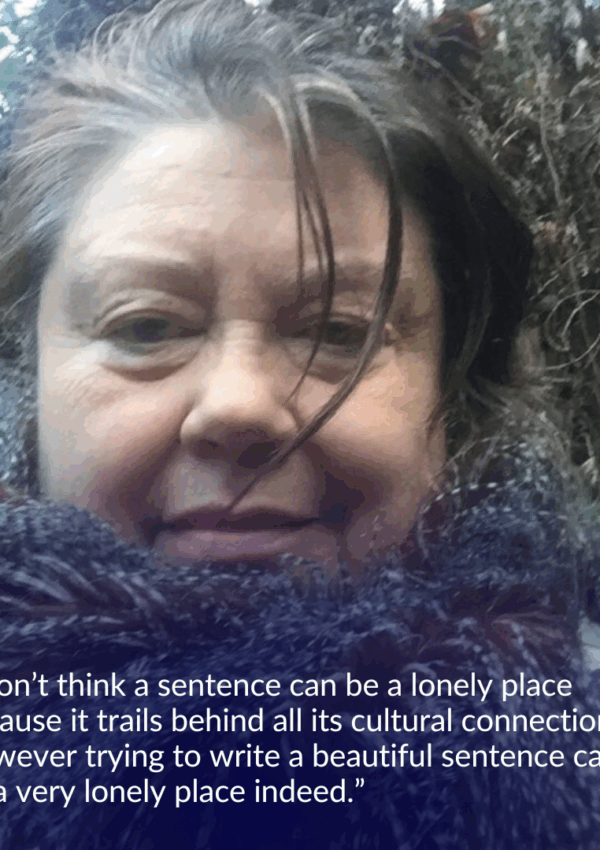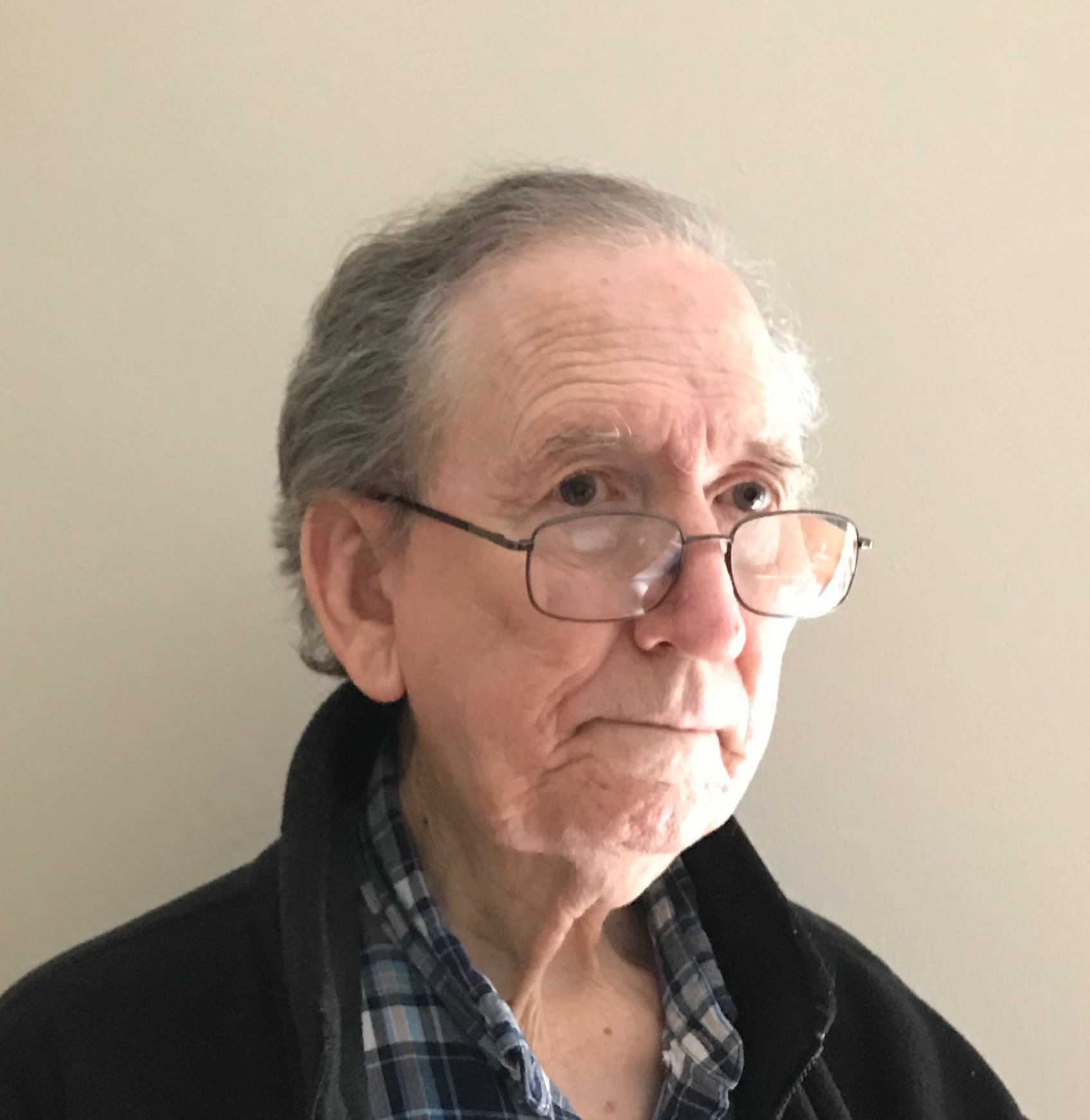When I was 21, in the fall of my senior year of college at Denison University, my father died. It was unexpected; in a course of weeks he died of liver failure, swift but sudden after years of being overweight and diabetic. A year and a half later, my mother died of metastatic breast cancer. My point in introducing this isn’t to make you feel bad for me, or for them, though; it’s to explain and elaborate on how it was different to handle each death in elegy and to discuss why each was so different, surprisingly to me at the time. In fact, I shouldn’t have handled either differently from the other.
When my father died, as I was working on my senior thesis, I couldn’t stop writing about him. I wrote about what it was like to visit him in the hospital, the smell of stale piss and the smell of plastic tubing in the room, combined with the smell of cleaner emanating from the floor. I wrote about what it was like to see him lose his clarity but not his sharpness, as he texted me “is this a fish?” when I sent him a picture of a painting of a tree I was working on (I’m still trying to find the fish in it), but threw bedpans at nurses as he got frustrated with what he perceived as ineptitude (my father worked in the hospital for 20 years as a perfusionist, and had no patience for that there).
When my mother died, I didn’t write anything except one poem for a year, a poem that went at grief and my mother’s experience but didn’t let me feel it. And I trashed that poem and tried to turn it into a flash non-fiction piece. And then I trashed the non-fiction piece and got drunk from 7 p.m. to 5 a.m. most Friday nights while living and teaching in Daejeon, South Korea, half a world away from my family, trying to clear my head. Or something. I don’t remember much about that poem except that it included fire; I don’t remember much about that time except that my life included fire. And fear.
But I grew up and I went to graduate school at the University of Maryland and began to learn I was approaching elegy in the wrong way—trying to write through it rather than around it. (Thanks to many patient professors.) I learned that, while it felt like it was easier to write about my father, I had written about my mother for years and she was always present in my work. I’d been preparing to write her elegy since I was 11 and her stage-three cancer was first discovered, since I was 13 and I first started writing verse. Beyond her disease always being present, always a part of my adolescence, I was an only child and she and I were like sisters. We talked about everything. In that way, her body comes through in every subject I write about.
Where my father’s body is more unwieldy. He shows up at the side of the operating table when I have my hands covered in blood. He loved when I wrote about my open-heart surgery that I had last year (I know he always wants to be there to run the heart-lung machine). But otherwise he stays buried, hides in the supply closet with the cotton swabs. We had a different relationship; anyone who knew my father will say he was a silent presence, but a presence felt, nonetheless—the man behind the camera, rather than the one in the scene. But it was complicated, as most father-daughter relationships are. He terrified me with his booming voice from the time I was 4, but there was no hug or guiding hand like his. I still remember when I had my first break-up in college and called him at 2 a.m. He talked with me for an hour, and ordered a shower and at least 5 hours of sleep before I had to get up for class. While I still haven’t successfully written about this in a poem, it’s because I went into that poem wanting to write about that specific memory, and to tether it to a pink plastic phone my parents gave me as a toddler.
What worked the magic, so to speak, more than any of this, though. was when I did Tupelo Press’s 30/30 challenge, where you write a poem every day for a month, two years in a row, and learned what it was like to have to write every day. That was when I allowed my parents to invite themselves into my work; that was when I learned to write about whatever was on my mind, wherever I was physically. without the pressure of writing about grief or the mentality surrounding it. That was when my poems became more about image than feeling, in approach. And suddenly, I had a manuscript of 51 pages that was elegiac in the way it wanted to be, not the way I forced it to be. It was cohesive and I was ready to start sending it out, and I have.
You need to let loves show up in elegies, as they want to. Invite them to their funeral but don’t show up at their door and tell them that they need to be the guests of honor, and need to come wearing a certain shade of black, or I guess Payne’s Gray, if they don’t have something new. Let them crash the party. Don’t tell them that you’re going to write their eulogy. Because if you’re patient, and you listen, they’ll ask you to write it for them, and they’ll tell you what they want in it.
 Kelsey Ann Kerr teaches writing composition at the University of Maryland and American University, and holds an M.F.A. in Poetry from the University of Maryland. Her work can be found, or is forthcoming, in Stirring: A Literary Collection, New Delta Review, Mezzo Cammin, The Sewanee Review, and The Atlanta Review, among others. Her poetry also has been nominated for Best of the Net 2017. You can find her @kelseyapoet on Twitter.
Kelsey Ann Kerr teaches writing composition at the University of Maryland and American University, and holds an M.F.A. in Poetry from the University of Maryland. Her work can be found, or is forthcoming, in Stirring: A Literary Collection, New Delta Review, Mezzo Cammin, The Sewanee Review, and The Atlanta Review, among others. Her poetry also has been nominated for Best of the Net 2017. You can find her @kelseyapoet on Twitter.
Kelsey’s poetry appears in Black FoxIssue 16.



